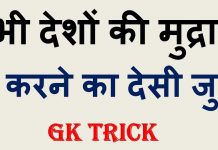Material For Banking Interview Preparation 12
Hello Readers,
Interview Preparation Material Set 11 is here. Have a look
IBPS-PO/Clerk Interview Preparation Material : Set-12
1. FCNR Accounts:
Foreign Currency Non-Resident accounts are the ones that are maintained by the NRIs in foreign currencies like USD, DM, and GBP etc. The account is a term deposit with interest rates linked to the international rates of interest of the respective currencies.
2. Overdraft:
This is when a person has a minus figure in their account. It can be authorized (agreed to in advance or retrospect) or unauthorized (where the bank has not agreed to the overdraft either because the account holder represents too great a risk to lend to in this way or because the account holder has not asked for an overdraft facility).
3. NRE Accounts:
Non-Resident External accounts are the ones in which NRIs remit money in any permitted foreign currency and the remittance is converted to Indian rupees for credit to NRE accounts. The accounts can be in the form of current, saving, FDs, recurring deposits. The interest rates and other terms of these accounts are as per the RBI directives.
4. Security for Loans:
Where large loans are required the lending institution often needs to have a guarantee that the loan will be paid back. This takes the form of a large item of capital outlay (typically a house) which is owned or partly owned and the amount owned is at least equivalent to the loan required.
5. Time Deposit:
Time deposit is a money deposit at a banking institution that cannot be withdrawn for a certain “term” or period of time. When the term is over it can be withdrawn or it can be held for another term.
6. Composite credit / loan :
Credit is the main input for sustained growth of small scale sector and its availability continues to be a matter of concern. Credit provided for fixed asset is called long term credit and credit provided for running the industry’s day to day requirements is called short-term or working capital. Provision of credit by banks and financial institutions for working capital and fixed capital of micro and small enterprises is called as composite credit.
Government encourages banks to provide composite credit to micro and small enterprises. In the year 2000, the composite loan limit was Rs.25 lakhs which has increased to Rs. 1 crore in 2004. Under Composite Loan Scheme, the SSI units can obtain working capital and term loan together from a single agency.
The composite loan scheme is subject to following parameters
1. The debt equity ratio should be 3 : 1 in the total project outlay after taking into account the amount of investment / incentives available for project.
2. Margin requirement for all backward areas in state is 25%, and for other areas and municipal limits of cities of State is 30%.
3. The State Financial Corporation (SFC) will have first charge on fixed assets and hypothecation of current assets. It may also ask for collateral security against Working Capital Loan.
7. Bancassurance:
Bancassurance refers to the distribution of insurance products and the insurance policies of insurance companies which may be life policies or non-life policies like home insurance – car insurance, medi-policies and others, by banks as corporate agents through their branches located in different parts of the country by charging a fee.
8. Brick & Mortar Banking :
Brick and Mortar Banking refers to traditional system of banking done only in a fixed branch premises made of brick and mortar. Now there are banking channels like ATM, Internet Banking, tele banking etc.
9. Consumer Protection Act :
It is implemented from 1987 to enforce consumer rights through a simple legal procedure. Banks also are covered under the Act. A consumer can file complaint for deficiency of service with Consumer District Forum for amounts up to Rs.20 Lacs in District Court, and for amounts above Rs.20 Lacs to Rs.1 Crore in State Commission and for amounts above Rs.1 Crore in National Commission.
10. Core Banking Solutions (CBS) :
Core Banking Solutions is a buzz word in Indian banking at present, where branches of the bank are connected to a central host and the customers of connected branches can do banking at any breach with core banking facility.
11. Crossing of Cheques:
Crossing refers to drawing two parallel lines across the face of the cheque. A crossed cheque cannot be paid in cash across the counter, and is to be paid through a bank either by transfer, collection or clearing. A general crossing means that cheque can be paid through any bank and a special crossing, where the name of a bank is indicated on the cheque, can be paid only through the named bank.
Frequently asked Questions No 1
Frequently asked Questions No 2
Frequently asked Questions No 3
Frequently asked Questions No 4
Frequently Asked Questions No 5
Frequently Asked Questions No 6
Frequently ASked Questions No 7
Frequently Asked Questions no 8
Frequently Asked Questions No 9
Frequently ASked Questions No 10
Frequently Asked Questions No 11
Frequently Asked Questions No 12
Frequently Asked Questions No 13 (letter of credit)
Frequently Asked Questions No 14
[do_widget text]
















